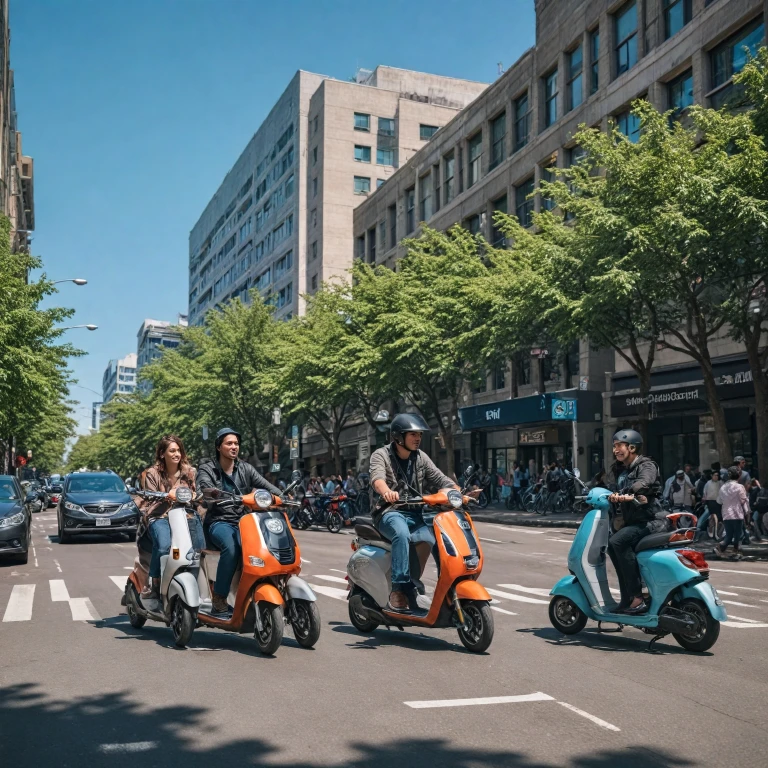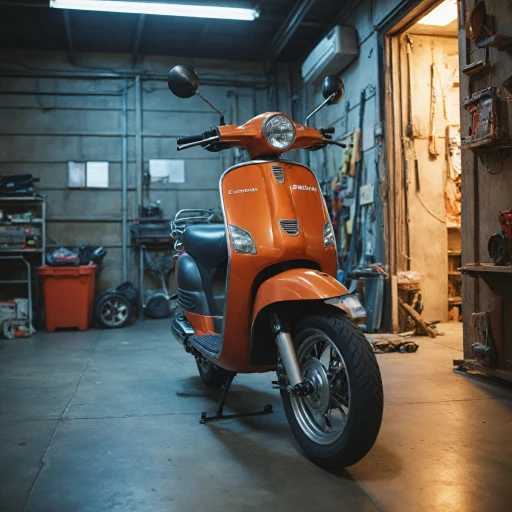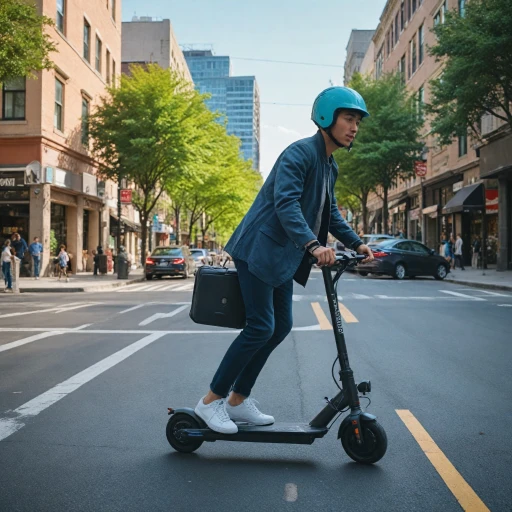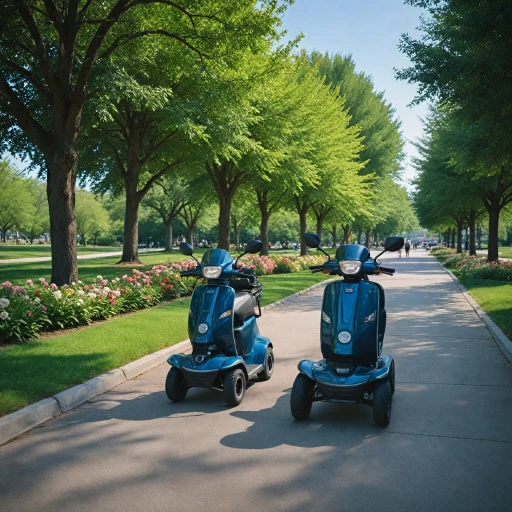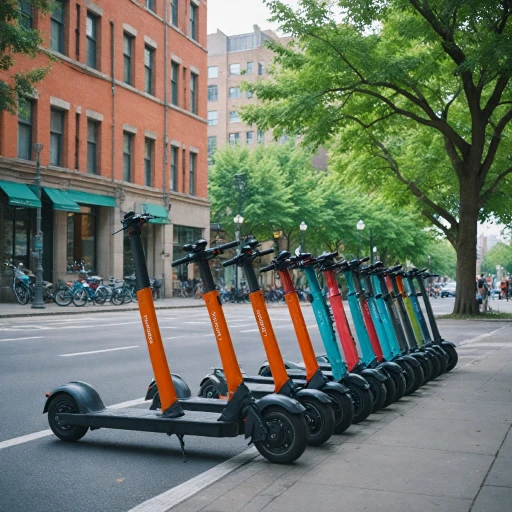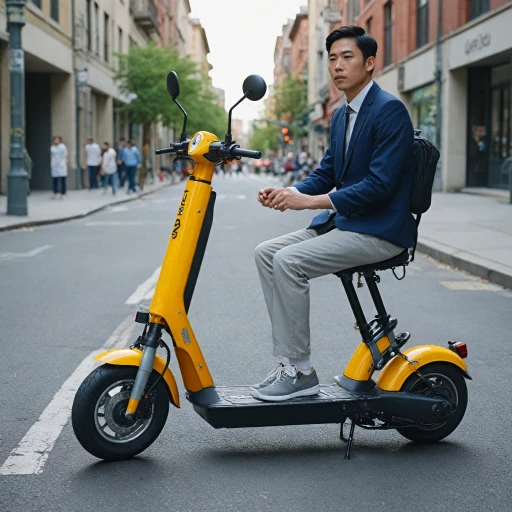Understanding Electric Cargo Scooters
What Are Electric Cargo Scooters?
Electric cargo scooters are an innovative twist on the traditional electric scooter, designed to carry more than just the rider. These scooters come equipped with enhanced storage solutions, such as baskets or cargo areas, to accommodate goods and even an adult passenger. With their powerful motors and extended battery life, electric cargo scooters are built to handle heavier loads while maintaining efficiency and speed.
Key Features and Components
These scooters often feature a sturdy frame to support additional weight, typically measured in lbs, and a robust electric motor that ensures a smooth ride. Many models come with a passenger seat, making them ideal for short-distance commutes or quick errands around town. The rear storage options, such as a basket or cargo area, provide ample space for groceries or packages.
Electric cargo scooters like the Razor EcoSmart are popular for their eco-friendly power and versatility. They often include bright LED lights for safety, lithium-ion batteries for extended range miles, and a max speed that rivals some electric bikes. These features make them a practical choice for urban transport, offering a sustainable alternative to traditional cargo trucks.
Why Choose Electric Cargo Scooters?
Choosing an electric cargo scooter can be a smart move for those looking to reduce their carbon footprint while enjoying the convenience of a motorized vehicle. These scooters are particularly popular in the United States, where urban areas are increasingly adopting eco-friendly transport solutions. With the ability to zip through traffic at speeds up to several mph, they offer a nimble and efficient way to navigate city streets.
For more insights into the benefits of electric scooters, you can explore this detailed guide.
Benefits of Using Electric Cargo Scooters
Advantages of Embarking on the Cargo Scooter Journey
Electric cargo scooters have taken the urban landscape by storm, offering an eco-friendly and efficient alternative to traditional cargo trucks and cars. A chief benefit of these vehicles lies in their capability to reduce carbon emissions—a much-needed shift given the environmental challenges we face. But that's just the beginning of the appeal.
Lightweight and Compact Design allows them to navigate tight spaces and heavy traffic with ease. Equipped with robust motors and high-capacity lithium-ion batteries, electric cargo scooters power through city streets, often achieving a max speed of 20 mph or more, depending on the model. This speed is ample for urban commutes and deliveries, minimizing idle time and maximizing efficiency.
A variety of electric cargo scooter models come with multiple features enhancing practicality. Storage solutions like baskets and rear carriers provide ample space for goods—perfect for businesses needing quick deliveries. For instance, the Razor EcoSmart Cargo model includes a seat for an adult passenger, making it versatile for both goods and general transit purposes.
In addition to speed and storage, these scooters offer significant financial savings. Unlike their fuel-powered counterparts, electric scooters are relatively low-maintenance and incur minimal operating costs. Charging is straightforward, often done overnight, ensuring the vehicle is ready for a day's work without a constant need for refueling.
Their ability to cater to various customer needs, from last-mile delivery services to casual day-to-day commuting, makes electric cargo scooters a go-to choice for businesses and individuals alike. As cities in the United States continue to grapple with congestion issues, these scooters represent a pivotal shift towards more sustainable and efficient urban transportation.
Challenges in Adopting Electric Cargo Scooters
Facing Obstacles with Electric Cargo Scooters
While electric cargo scooters offer numerous benefits, there are several challenges that make their widespread adoption more complex. Understanding these obstacles is crucial for enhancing the future application and development of these vehicles.
The primary concern revolves around range limitations. Despite technological advancements, electric scooters, including the cargo variety, often fall short in comparison to traditional vehicles when it comes to distance capabilities. Many electric cargo scooters provide a range of miles that may not suffice for long deliveries, limiting their utility for certain operations. This influences decisions, especially in regions where charging infrastructure is not fully developed.
Weight and capacity issues present another hindrance. The power of the motor must be well-calibrated to handle the weight of both the adult passenger and the cargo. Overloading can significantly impact performance, reducing the speed and effectiveness of the scooter. For instance, an electric cargo scooter with limited storage capacity or a battery unable to support heavy loads may not be suitable for businesses with higher logistical demands.
Weather conditions and terrain pose additional difficulties. The design of many electric scooters, such as the Razor EcoSmart cargo models, often prioritizes urban settings. They handle well on smooth surfaces but can struggle on uneven paths or under adverse weather conditions. Thus, their operational scope can be limited in certain environments.
Regulatory barriers also create challenges. In some areas, these scooters are categorized differently, often resulting in unclear or prohibitive legislation. This can deter potential users due to the complexity of ensuring compliance.
Lastly, there’s the financial aspect. Although prices for electric cargo scooters have become more competitive, the initial investment can still be daunting for small businesses or individuals. Overcoming such challenges and promoting affordability is key to wider adoption.
Innovative Uses for Electric Cargo Scooters
Creative Applications for Electric Cargo Scooters
Electric cargo scooters are redefining urban transport with their innovative uses, making them a versatile choice for various needs. These scooters are not just about getting from point A to B; they offer a range of applications that cater to both personal and commercial purposes.
Commercial Deliveries and Logistics
One of the most significant uses of electric cargo scooters is in the realm of deliveries. Businesses in the United States are increasingly adopting these scooters for last-mile logistics. With their compact design and ability to navigate through traffic, they are ideal for delivering packages swiftly. The addition of a cargo basket or rear storage enhances their utility, allowing them to carry substantial weight, often up to several hundred lbs, depending on the model.
Personal Transportation and Shopping
For adults looking for an eco-friendly ride, electric cargo scooters offer a practical solution. They come equipped with features like a passenger seat, making them suitable for carrying an adult passenger or extra shopping bags. With a max speed that often reaches up to 20 mph and a range of several miles on a single battery charge, these scooters are perfect for quick trips to the shop or around the neighborhood.
Eco-Friendly Commuting
As cities push towards greener transportation solutions, electric cargo scooters stand out as a sustainable option. Models like the Razor EcoSmart and EcoSmart Cargo are powered by lithium-ion batteries, providing a clean alternative to traditional gas-powered vehicles. Their electric motors ensure a quiet and smooth ride, reducing noise pollution in urban areas.
Utility in Urban Settings
Beyond personal and commercial uses, electric cargo scooters are also finding their place in various utility roles. From serving as mobile vending units to acting as eco-friendly cargo trucks for small businesses, these scooters are proving to be adaptable. Their ability to maneuver through crowded streets and offer reliable power makes them a valuable asset in bustling city environments.
In conclusion, the versatility of electric cargo scooters lies in their ability to adapt to diverse applications, making them an essential part of modern urban transport. Whether for personal use, business logistics, or eco-friendly commuting, these scooters offer a practical and innovative solution.
Comparing Electric Cargo Scooters to Other Urban Transport Options
Contrasting Electric Cargo Scooters with Other Urban Transportation Types
In the ever-evolving urban landscape, the rise of electric cargo scooters has introduced new dynamics in the transportation ecosystem. While cities are bustling with traditional and emerging modes of transport such as cars, bicycles, and public transit, electric cargo scooters offer distinct advantages and limitations.
Electric cargo scooters, especially models like the Razor EcoSmart, are designed to transport goods efficiently without the bulkiness of traditional cargo trucks. With an electric motor and a passenger seat, these scooters provide an eco-friendly alternative with appealing features like additional storage baskets, a cargo bike configuration, and a manageable weight lbs for maneuverability. Moreover, their bright LED lights and reliable lithium-ion battery offer security and convenience during rides, especially at night.
Let's break down how electric cargo scooters compare to other urban transport modes:
- Cargo Trucks: Unlike large cargo trucks, electric cargo scooters have a reduced carbon footprint and enable quick navigation through congested city streets. Their electric utility is vital for last-mile delivery solutions, offering households and businesses an alternative to traditional freight transport. However, their max speed may limit usage for long-distance haulage.
- Electric Bikes: Electric cargo scooters stand out with their seating arrangement. While an electric bike is efficient for single-rider commutes, scooters often have an extra passenger seat and more specialized cargo storage options, making them suitable for transporting goods. That said, the range miles may differ, contingent upon the battery capacity, which may impact the choice based on travel requirements.
- Public Transport: Public transportation systems are staples in urban environments, but they can be restrictive regarding package haulage. The scooters circumvent these limitations with their dedicated baskets, designed for ecoSmart cargo use. However, their storage capacity and passenger burden remain concerns owing to varying access in public transit domains.
When planning urban routes, one's zip code and terrain conditions also factor significantly into the decision-making process. Electric cargo scooters like the EcoSmart offer versatilities absent in conventional electric scooters, highlighting a promising shift toward efficient urban transportation solutions.
